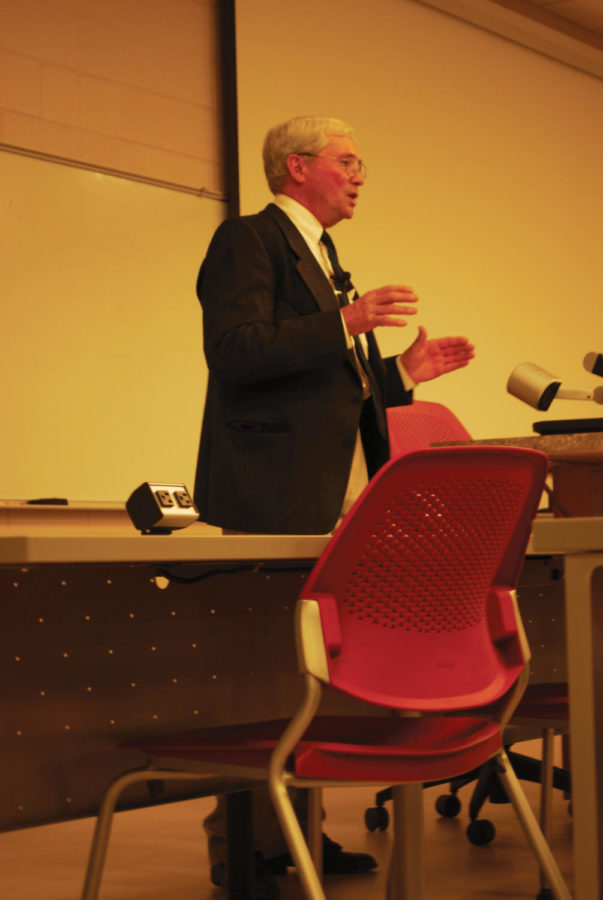Equine seminar brings in a world class expert
September 6, 2012
Veterinarian students and curious community members had the opportunity to gain more in-depth knowledge in horse lameness at the Kramer-Marks Equine Seminar.
The seminar is used to educate both students and the public about equestrian medicine.
Anthony Webber was this year’s keynote speaker. Webber previously was a student and colleague of Kramer. Webber is a veterinarian graduate from Western College of Veterinary Medicine, in Saskatoon, Saskatchewan. Through this lecture, Webber described his system of evaluating lame horses. He also provided some reflections on his career in equine practice.
After graduation, Webber spent nine years working at horse racetracks. He later opened a state-of-the-art clinic which emphasized equine lameness, surgery and reproduction in Canada. There Webber specialized in horse lameness.
Horse lameness is a condition in which a horse fails to walk or travel properly. Lameness is found in the leg of a horse. It can be as minor as an inflamed hoof and as severe as a fractured leg bone. Lameness in many cases is treatable.
It can take a large amount of knowledge to identify lameness in a horse. It is a skill that can take many years to develop. It also requires extensive knowledge of the animal, including how it is suppose to appear and trot. This is something that Webber discussed during his seminar.
He gave strategies and tips to both students and veterinarians. These tips included how to make a horse trust its owner as well as other people,, which is accomplished by petting the horse in various spots.
The surface in which a person examines the horse is important to get the right diagnosis, he said.
Webber explained the
importance of knowing the past of the animal, such as where it has been and what it normally does.
“You need to know, what does the horse do on a daily basis?” Webber said. “It’ll help you diagnose the condition better.”
He also stressed how important clinical examinations are for horses.
He recommended things that will help further young veterinarians’ skills in equestrian medicine. This includes things like taking a shoeing course, using specialized tools and being around horse trainers.
In 1993, Webber’s clinic started an internship program. They welcome veterinary students from around the world.
“This is the best profession that anyone could have,” Webber said.
The College of Veterinary Medicine sponsored the Kramer-Marks Equine Seminar.







